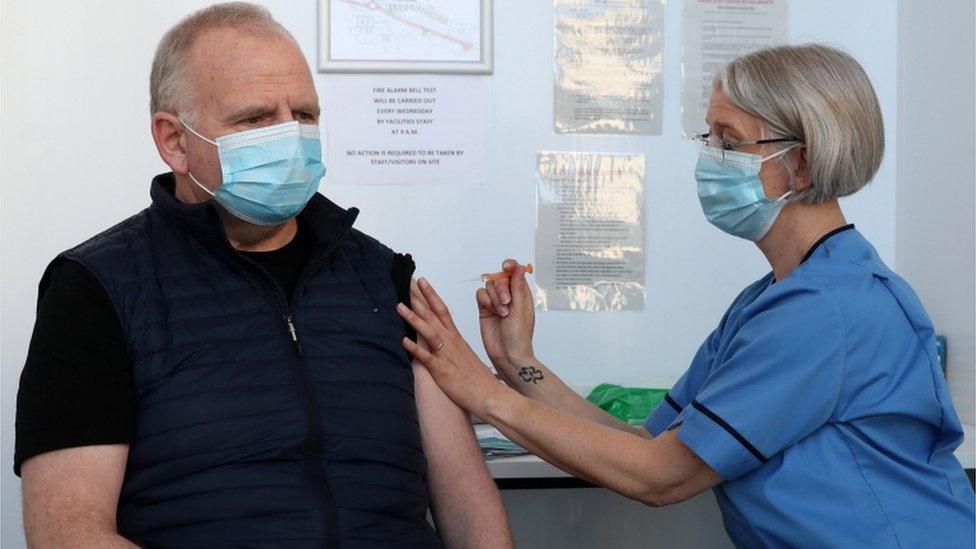Scotland to get 500,000 fewer Covid vaccine doses
- Published
- comments
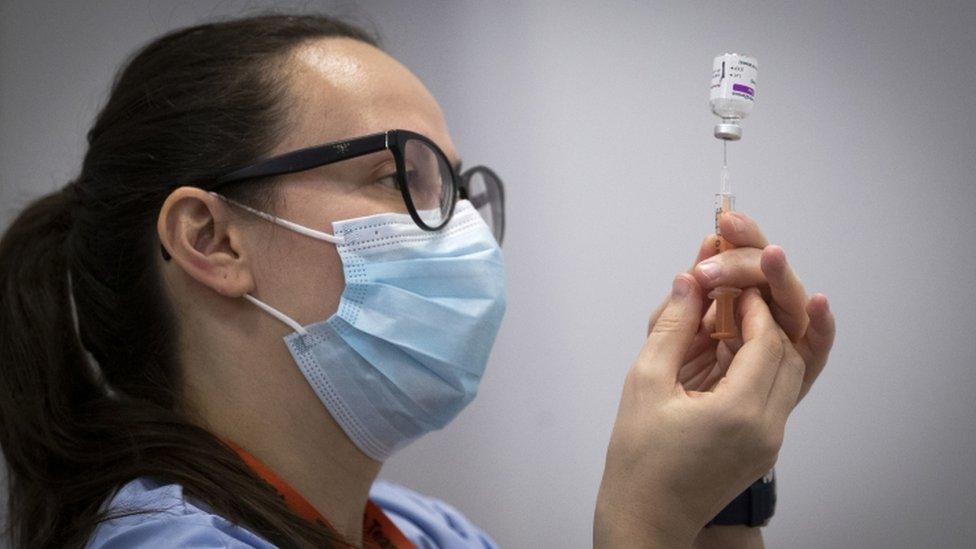
Scotland has delivered more than two million doses of the coronavirus vaccine
Scotland is to get 500,000 fewer vaccine doses over the next month due to UK supply issues.
However, First Minister Nicola Sturgeon said the country remains on track to meet its targets despite the shortfall.
UK ministers have faced calls to explain why there would be a significant reduction in incoming vaccines from the end of March.
It is partly due to a delay in a delivery from India of five million Oxford-AstraZeneca doses.
Ms Sturgeon told MSPs: "We expect that over the next month we will have approximately 500,000 fewer doses than we had previously anticipated.
"For that reason there may be periods in April where we need to prioritise second doses."
Second doses should be administered within 12 weeks of a first dose.
Ms Sturgeon added that the government still intends to offer first doses to all people in the Joint Committee on Vaccination and Immunisation (JCVI) top priority groups by mid-April.
This covers everyone aged over 50, unpaid carers and people with underlying health conditions.
The first minister said she "still expects" to offer a dose to all adults in the population by the end of July.
She added: "We have always known that supplies will be subject to some volatility but the roll-out of the programme overall continues to be really encouraging and it does give us real cause for optimism now about the months ahead."
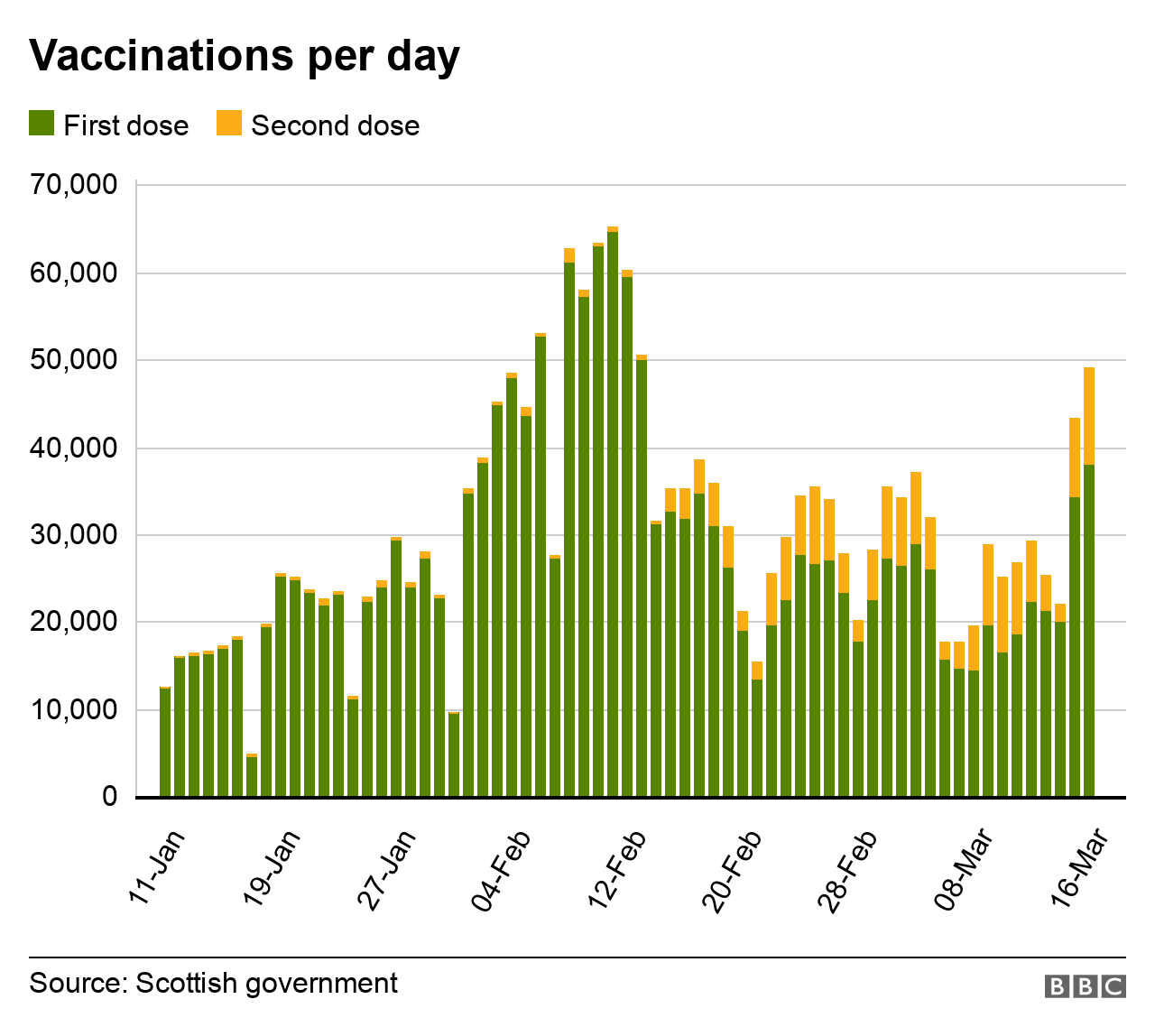
Earlier, Scotland's national clinical director told Holyrood's Covid-19 committee that targets should be met despite a "significant reduction" in UK vaccine supplies.
Professor Jason Leitch said ministers may have to think about "who comes next and when they come next" after April.
He added: "We do not anticipate it will affect our second doses at all because we can prioritise them and just now they are mainly Pfizer."
Prof Leitch said there is no suggestion from either Pfizer-BioNTech or AstraZeneca that they will not be able to meet their end targets.


The national clinical director has made it clear that disruption to the vaccine supply will not affect two key targets.
All those over 50 or with underlying health conditions should still get their first jab by mid April, and the whole of the adult population should still be offered a jab by July.
One big question is when people in their 40s with no underlying health conditions - who may have been assuming they would be vaccinated in mid to late April - will now get their jab.
Another is whether disruption to the supply will have any effect on the easing of lockdown.
As the plan was to vaccinate over-50s by mid April and it takes three weeks for someone to get as much protection as one dose offers, it would seem unlikely that there will be any effect on the changes planned for 5 and 26 April.
But will progress be sufficient to allow other restrictions to ease in May and June as hoped?
The groups who will be vaccinated by mid-April account account for 99% of Covid deaths and the overwhelming majority of hospital admissions.
But with a growing amount of evidence that vaccination also reduces transmission, immunising younger people will also play a part in keeping case numbers down and providing even more protection to those most at risk.
It will be well worth watching the numbers in the coming weeks.

The UK government said neither a single factory nor a country was responsible for the expected slow down.
Housing Secretary Robert Jenrick told the BBC that UK supplies would be lower "than we might have hoped for in the coming weeks", but this was expect to increase in April.
Prof Adam Finn, a member of the JCVI, said the supply issues meant efforts would focus on the first phase of the programme to vaccinate the over 50s.
Second doses for those immunised earlier in the year would also be prioritised
'Partial interruption'
The Bristol University academic told BBC Radio's Good Morning Scotland that phase two - to vaccinate the remaining adult population - would move forward when supplies were restored.
Prof Finn said: "We have seen this in the past with other vaccines. Because they are biological agents rather than straightforward drugs they are more difficult to manufacture at scale.
"So we always try and make sure that we have got more than one supplier for vaccination against any particular disease."
Prof Finn said the issues should only result in a "partial interruption" to UK's vaccination programme and said it remains "on track".
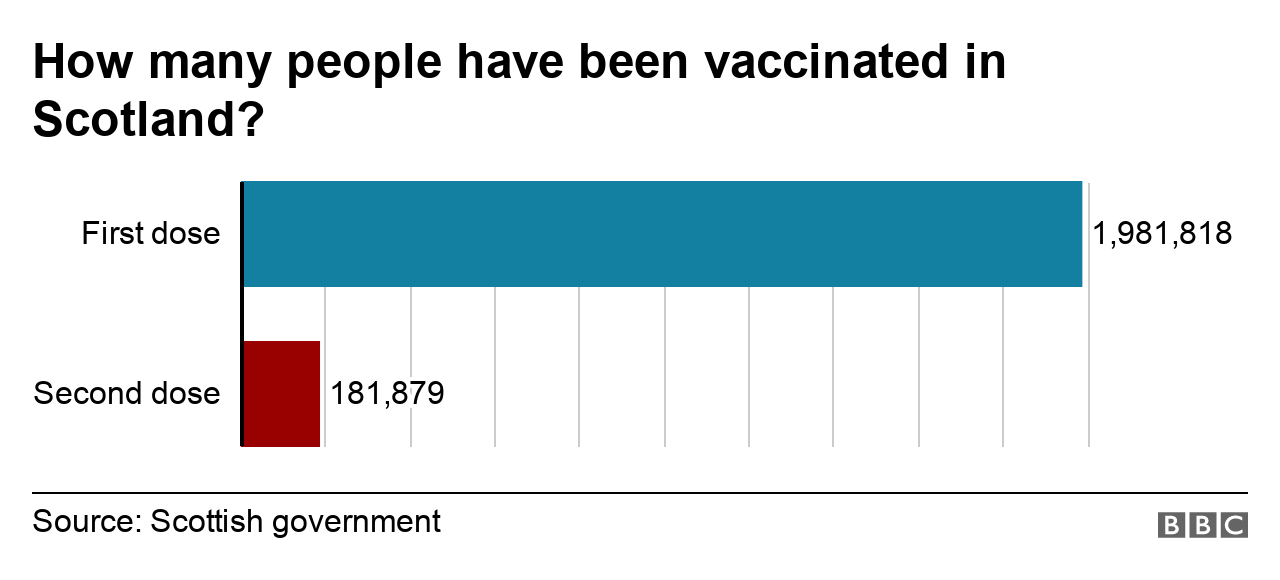
The Scottish government said that "appointments will be fulfilled" for anyone already scheduled to have their first dose or second dose.
A spokesman added: "Supplies of the vaccine have dipped before and our vaccination programme will continue to manage the stock available to get vaccines into arms as fast as possible."
On Wednesday it was announced that more than two million people in Scotland had received their first dose of the vaccine.
The Scottish government said the milestone meant that 44% of the eligible population had been reached.
Latest vaccination figures reveal 2,023,002 had received their first dose of the vaccine - an increase of 41,184 - as of 08:30 on Thursday.
A total of 192,100 people have so far received a second dose of the vaccine, an increase of 10,221.
That means 51,405 received vaccinations on Wednesday.


Related topics
- Published18 March 2021
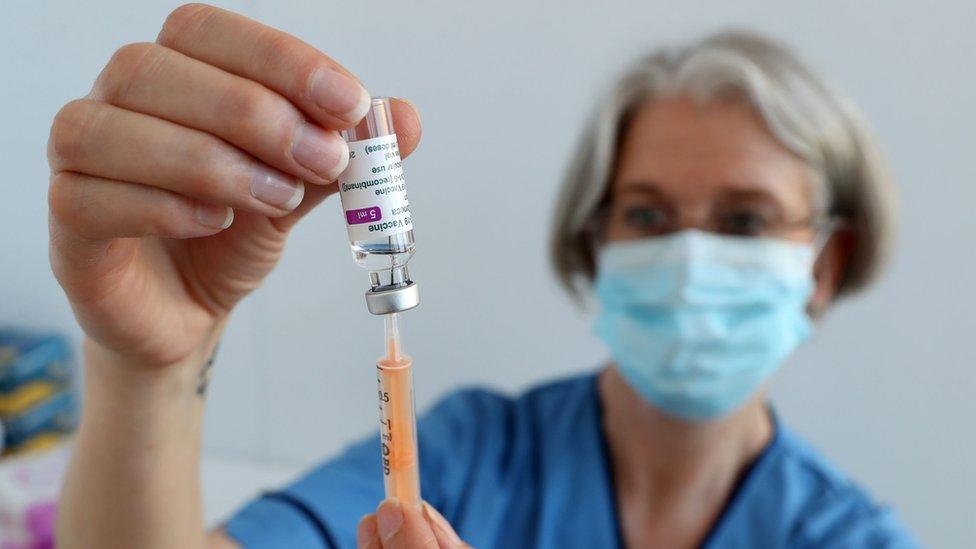
- Published17 March 2021
